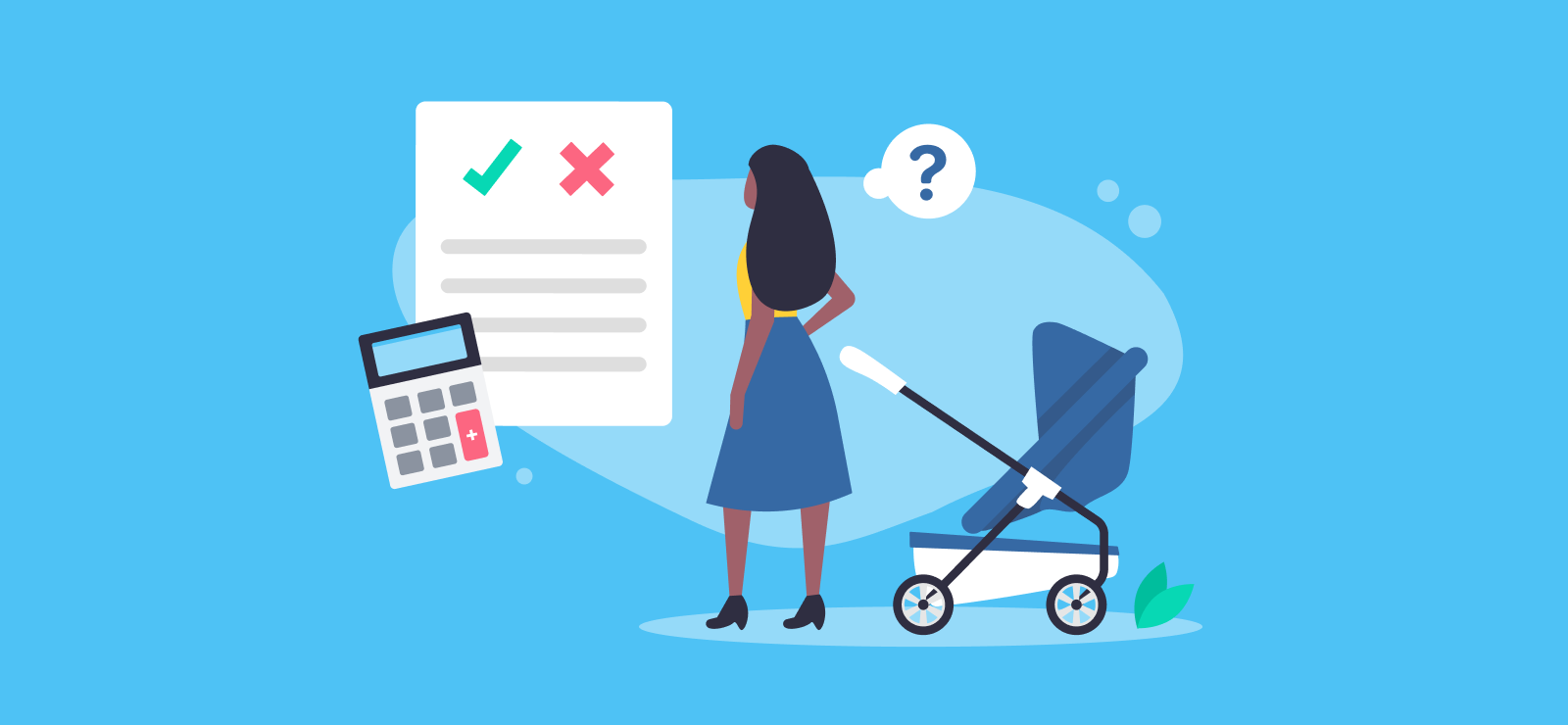

A Tax Guide for Furnished Holiday Lettings (FHL)
A furnished holiday let (FHL) is a type of short-term rental accommodation that can be a lucrative way for property owners to earn an income. Like other types of property income, furnished holiday lettings need to be reported on your tax return if you’re a landlord, but the tax treatment is slightly different to a normal property.
In this blog post, we’ll answer frequently asked questions such as what qualifies as a furnished holiday let, and what this means for paying tax.
Just be aware that the special tax rules for Furnished Holiday Lets (FHLs) were abolished with effect from 6th April 2025, and this type of property will now be treated as a long-term let.
Can I still claim FHL rules on my 2024/25 tax return?
Even though special tax rules for furnished holiday lets (FHLs) were removed as of April 2025, you’ll still benefit from them on your 2024/25 tax return if your property qualified as a FHL in that year.
What qualifies as a furnished holiday let?
The term ‘furnished holiday let’ has a statutory definition, so to qualify the property must:
- Be let out on a short-term commercial basis in order to make a profit
- Satisfy the criteria for availability and promotion
- Be in the UK or the European Economic Area (EEA)
- Have sufficient furnishings available for visitors to use when they stay
If you own multiple furnished holiday lets in the UK, they’ll be treated as one business for tax purposes, but you must still keep separate records for each business. If you have properties across the UK and EEA, they’ll be grouped. That is, all of your UK properties will be classed as one business, and then all of your property in the EEA will be classed as another business.
What is a commercial letting?
A commercial letting is a property that you rent out with the direct intention of making a profit. If you offer lower fees during out-of-season periods when demand is lower, you might not make as much profit – or even any – but these lettings can still be treated as commercial.
Just be aware that if you plan to let the property out to friends or family for either free or low cost, this isn’t counted as a commercial letting.
What furniture do I need to supply to qualify as a furnished holiday let?
You don’t need to get totally carried away, but the accommodation should be furnished to a standard which is sufficient for everyday use. Any furniture or equipment in the property must be available for any visitors to use freely. A good benchmark for this is to furnish the property to a self-catering standard.
What are the conditions for FHL?
As well as meeting the commercial and furnishing requirements in order to qualify as a furnished holiday, the property must also satisfy conditions around availability, occupancy, and promotion.
The availability condition
The property must be available as a commercial holiday letting for a minimum 210 days (30 weeks) of the year. It’s worth noting that time when the property is occupied by the owner doesn’t count. So, although you can live in your holiday let, it won’t be classed as an FHL whilst you’re there, even if you have a paying visitor staying at the same time.
The pattern of occupation condition
The property cannot be let by one customer for more than 31 consecutive days (otherwise it’s considered a long-term let), or for more than 155 days (22 weeks) in one year.
The letting condition
The property must be commercially let to the public for at least 105 days (15 weeks) of the year. If you own more than one furnished holiday letting, then you can use an averaging election or a period of grace election to help you meet this criteria. This basically means that you can use the average rate of occupancy across all your FHLs, rather than on the basis of each individual property.
For furnished holiday lettings a ‘year’ is normally a tax year (6th April-5th April), unless it’s a new FHL, in which case a year is a 12-month period beginning the day on which it was first let as furnished accommodation.
Promotion
In order to qualify as an FHL, the short-term rental property must be actively promoted. This means active marketing, rental listings or even promotion via a holiday letting agency or platform such as AirBnB if this is in your budget.
Do I need permission to let out a furnished holiday let?
The quick but not very useful answer is that ‘it depends’. For instance, if this is a brand-new holiday let and you’re changing the original purpose of the premises, then you might need permission from your mortgage provider or planning permission from the council. There might also be other considerations, such as the local homeowner’s association (if there is one).
Do I need to pay tax on income from a furnished holiday let?
If you receive an income from a furnished holiday letting then you’ll need to report this to HMRC, and pay any tax that’s due (for example, by submitting a Self Assessment tax return detailing your untaxed property income). It’s well worth noting that platforms such as Airbnb are required to collect information about the earnings you receive through their site, and report this to HMRC. You’ll be given a copy of any information shared to HMRC – so be sure to double-check it!
The good news is that FHLs are treated as a commercial business for tax purposes, so you can offset some of your costs against the income you make in order to reduce your tax bill.
Allowable expenses for furnished holiday lets include (but aren’t exclusive to):
- Heat, light and other eligible utilities
- Waste collection
- Maintenance and repairs (including things like gardening and housekeeping)
- Loan interest directly related to that property
- Accounting costs
- Insurance costs
- TV license and subscription fees
- Advertising and promotion
- Letting agency fees
- Health & safety checks
What about VAT?
You only need to register for VAT if your VAT-taxable turnover in a 12-month period reaches the £90,000 registration threshold. If you do need to register then the normal rules for charging, reporting, and paying VAT will apply.
Unfortunately you will only be able to claim back some of the VAT you pay if you build the house (or convert it for residential use, or repair it after years of being empty) and it’s for use by you or your family.
Do furnished holiday lets have special tax rules?
FHLs are a bit different to the income you might earn from other types of property, which means that you might be able to use tax relief allowances that aren’t available with other types of rental income.
We’ll go into a bit more detail about these in a second, but it’s also important to point out that if your furnished holiday let business makes a loss, this loss can only be carried forward against profit from the same furnished holiday let business.
This applies to FHLs in the UK and EEA. Carrying a loss forward means that the loss can be offset against profits you make in the future – which helps to reduce your tax bill.
It’s also worth noting that you’re not liable to pay Class 4 National Insurance on your FHL because the profit is taxable as rental income.
Capital allowances
Furnished holiday lettings are entitled to capital allowances on any items designed to improve the facility and therefore increase potential rental profit. This includes things like furniture, white goods, fixtures, and other equipment (such as kitchen or bathroom amenities). This type of allowance is not available for long-term rental accommodation.
The costs for these applicable expenses can be deducted from pre-tax profits, reducing the amount of tax that will be due on the rental income you receive through your FHL.
That said, there are some cases where camping and glamping accommodation might be eligible for capital allowances.
Pension contributions
Unlike other forms of rental income, profits from furnished holiday letting are classed as relevant earnings for pension purposes. This means that they’re eligible for pension contributions (including employer’s contributions), depending on how much you earn from the letting.
Capital Gains Tax relief
Any profit that you make from an asset which has increased in value since you bought or acquired it might be subject to Capital Gains Tax (CGT). The good news is that you might be able to claim relief against this if you sell your furnished holiday let property.
There are three specific areas where you can claim CGT relief:
- Business Asset Rollover Relief: This means you can delay paying the Capital Gains Tax you owe if you plan to sell or use part or all the proceeds to invest in a new holiday home. To benefit from this form of relief, all proceeds from the sale of your FHL go directly towards the new property.
- Business Asset Disposal Relief: This used to be known as ‘Furnished Holiday Let Entrepreneurs’ Relief’, and it’s only available on short-term rental properties which qualify as an FHL, and you can only use BADR on your FHL in your 2024/25 tax return. BADR is no longer available to furnished holiday lets as of April 2025.
- Gift Hold-Over Relief: If you plan to pass on your FHL to somebody for free or less than it’s worth, you won’t need to pay any Capital Gains Tax. This is particularly beneficial when passing property down to younger family generations as it makes inheritance and succession planning far more tax efficient. The recipient will be the one who will pay CGT if or when they come to sell the property themselves.
This type of financial support is not available to long-term rental properties, which is another reason why furnished holiday letting is considered such a tax-savvy way to earn extra income. Use our free Capital Gains Tax calculator to estimate your bill.
Can I split the profits with my partner?
If you own a furnished holiday let with your husband or wife, you’re allowed to flexibly distribute the profits between both of you for tax purposes.
It’s a bit different in long-term rentals, where profits are shared out according to how much of the property you officially own. For instance, if you own 40% of the property, you get 40% of the profits. In this respect, FHL are far more flexible, and you can share the profits between you as you see fit!
Learn more about our online accounting services for property businesses of all shapes and sizes. Call 020 3355 4047 to talk to the team, get an instant online quote, or hit the Live Chat button.
Want to learn more?
Subscribe to our newsletter to get accounting tips like this right to your inbox

Read more posts...

The Accountancy Partnership – Our Positive Reviews
16th February 2026We’re proud of our customers’ reviews here at The Accountancy Partnership The reviews we receive from our customers show how hard we…
Read More
Maternity Pay for Self-Employed People
15th February 2026As a self-employed person you might be eligible to get Maternity Allowance payments for up to 39 weeks. It’s different to Statutory…
Read More
National Insurance for the Self-Employed
14th February 2026If you work for your own self-employed business, then you may need to pay National Insurance on the profits that you earn….
Read MoreConfirm Transactions
The number of monthly transactions you have entered based on your turnover seem high. A transaction is one bookkeeping entry such as a sale, purchase, payment or receipt. Are you sure this is correct?
Please contact our sales team if you’re unsure
VAT Returns
It is unlikely you will need this service, unless you are voluntarily registered for VAT.
Are you sure this is correct?
Call us on 020 3355 4047 if you’re not sure.
MTD IT Quarterly Updates
Your final, end of year MTD Income Tax submission is included in your fee.
You can submit the quarterly updates yourself using Pandle, or alternative bookkeeping software (which we recommend).
However, if you would prefer us to submit these updates, there is an additional fee of £35.00 per month.
Call us on 020 3355 4047 if you’re not sure.
Bookkeeping
You will receive our bookkeeping software Pandle for free, as part of your package.
You can use this to complete your own bookkeeping, or we can provide a quote to complete your bookkeeping for you.
Please select and option below:
Call us on 020 3355 4047 if you’re not sure.

